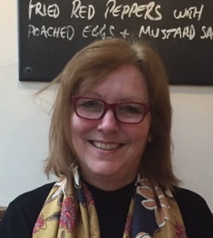The CCRC needs to change its culture & stop being so defensive
The Criminal Cases Review Commission recently announced a new programme of public engagement. (CCRC promises “greater transparency and openness” with launch of new public engagement initiative)
Cynical me, first reading this I wondered if this was really the same CCRC that took the decision not to allow journalists to its 20th anniversary London conference a mere three months ago. They declined the Justice Gap’s request to attend. David Rose, a journalist invited in his capacity as a previous conference chair, took the CCRC to task about its inexplicable decision. This set the often challenging tone for the day’s conference.
Swift self-rebuking followed my initial cynicism. ‘You, as much as anyone’, I scolded myself, ‘know how divisive and negative the miscarriages of justice world can be. Give them a chance.’
So, I genuinely welcome this announcement, and the fact that it was made on the Justice Gap website, which has been the platform for various exchanges (some unfortunate) with the CCRC in the past. This announcement didn’t take me by surprise: David James Smith mentioned it at their 20th anniversary conference. Surprisingly, he had previously been unaware of a past similar stakeholder group (my colleague Dr Dennis Eady was on that group), that for some reason (it seems, lack of focus and aim) fizzled out.
So what will this renewed stakeholder forum, along with its new lecture series, bring to the wrongful convictions arena? Well, that very much depends upon whether the CCRC genuinely wants to engage, or whether this is just a box-ticking exercise.
Stakeholder Forum
The CCRC is inviting expressions of interest. So far, so good. But, as the Centre for Criminal Appeals has tweeted.
How are @ccrcupdate‘s most important stakeholders – prisoners insisting they’ve been wrongly convicted or unfairly sentenced – supposed to register their interest in participating in these stakeholder forums? They can’t email forum@ccrc.x.gsi.gov.uk. https://t.co/y2YGFkmB1U
— Criminal Appeals (@C4CrimAppeals) February 9, 2018
Excellent point. How is the CCRC going to address that? Surely, if it is to be meaningful, the forum must have representation from prisoners maintaining innocence, directly affected by the CCRC’s actions or inactions upon their cases.
How many people are the CCRC seeking to join the group: ‘a limited number by invitation’?
Does that mean a handful, or a dozen, or more? What dictates their decision on membership numbers and composition? Are they looking for individuals or representatives, ex officio, of certain groups, for example campaign groups? Have they considered rotating representation so that a larger number of support/campaign groups can engage from time to time? Transparency is essential, starting from outset on decision-making about forum membership selection and numbers.
What will be the remit/focus of the new stakeholder group? How often will it meet? Who will have an input into the agenda of forum meetings? Will the minutes of meetings be available publicly? Does it have specific aims and objectives, and who will be drafting these? Will there be required outcomes/outputs? Is there scope for stakeholders to be involved by assisting drafting the terms of engagement for the group? If not, why not?
‘The forum is designed to promote dialogue and understanding between the Commission and a cross-section of its key stakeholders and users.’ Again, an excellent and most welcome declaration. But what will be the result of the dialogue that is promoted? Where will those discussions be recorded/reported? How, if at all, will they be linked to pressing the government for reform? Where/how, if at all, do the new CCRC initiatives fit in with, or complement, the newly-formed All Party Parliamentary Group on Miscarriages of Justice?
Lecture series
The CCRC says: ‘We hope the lecture series will stimulate wider debate about important issues facing the CCRC and the criminal justice system more widely.’ Again, very welcome, and overdue if I may say so. But how will this sit alongside, and/or complement, wider policy recommendations such as those of the 2015 Justice Select Committee? Where does the relationship between the CCRC and the court of appeal feature in these new initiatives? Many see that as at the core of problems with the criminal justice system. There needs to be willingness on the part of the CCRC to be open to meaningful discussions about that.
Joint Enterprise
‘The second lecture (‘Joint Enterprise Appeals – have the Courts of England & Wales lost sight of justice?’)’: yet again, excellent news. JENGgA has long campaigned for reform of the law of joint enterprise, and it’s welcome that Felicity Gerry will talk about the Jogee case and its implications. But, will the CCRC be emboldened to challenge the court of appeal on the lack of any progress post-Jogee? If not, what is the specific purpose of having Felicity talking about this?
Two things (there are many more) urgently need stakeholder discussion, in my view:
Police accountability
It’s all very well, given the current media thirst for non-disclosure stories, for the CCRC chair to say that disclosure features in most CCRC cases (here). But will the CCRC go a step further and engage more widely with police investigation issues? At our Cardiff project, we are genuinely at a loss to understand the CCRC’s reluctance to engage with this. By way of illustration, imagine this scenario:
A post-conviction disclosure request is made to the police for testing of a gun and bullets used in a murder. This is met with a response, ‘Oops, we have lost them after the police station was re-decorated’ – obviously paraphrased, but yes – this actually happened. What should the CCRC do?
- Take that at face value; or
- Think, ‘Hillsborough’ and ‘public confidence’, and really use all their powers to play the role of a true miscarriages of justice watchdog.
Experts
Is the CCRC going to be more accepting of experts proposed by applicants and their representatives? It is our experience that such experts, often secured pro bono because of their concern with issues raised, are often inappropriately treated as if they are aligned with the appellant, and therefore not objective.
Culture change needed
‘Meaningful’ and ‘no box-ticking’ are key words and concepts for this new stakeholder group to embrace. It also needs to be accompanied by a culture change on the part of the CCRC. A past commissioner (Laurie Elks) talks about the need to take a holistic view rather than an atomistic view. This is vital.
I have only 12 years’ exposure to this complex, highly-charged, political world. Others have lifetimes, either voluntarily or because they have no choice but to fight for loved ones. But I find it deeply depressing, frustrating, all-consuming and totally disingenuous, in equal measure. Level playing fields, fairness and recognition of human fallibility seemingly have no place. Instead, the emphasis is on defending indefensible broken systems and practices. Finality and a misplaced and misdirected desire to protect public confidence totally override ‘reasonable doubt’ and fair play. Nothing can be perfect where human beings are concerned and there will always be mistakes. But we need the CCRC to change its culture and to stop being so defensive, if things are to change for the better.
We need a willingness on the part of the CCRC to try radical change and to seek support in unlikely places, including from those dealing with cases on a daily basis. We are on the same side, or at least we should be. Michael Naughton’s vision of a network of universities working on cases was an inspired visionary one. His achievement of more than 30 universities starting innocence projects was remarkable. It is such a shame that many of those have simply given up because the system is impossible. That potential resource has been lost. The Centre for Criminal Appeals, and Inside Justice, have however embraced this opportunity of students providing extra pairs of hands. Imagine if the CCRC could don its creative cap to find a way of strategically utilising the energy and willingness of such organisations to enhance its own meagre resources rather than considering them as opponents. Now that really would be radical.
I congratulate the CCRC on its plans for a new stakeholder group. I genuinely hope that the new group will find a way to speak truth to power.
This article was first published on February 14, 2018







